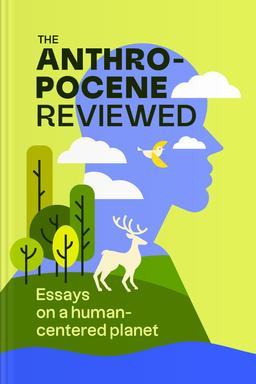What is Falter about?
This thought-provoking book explores the dire consequences of climate change and human activity on the planet. It examines the interplay between technology, economics, and the environment, questioning whether humanity is steering its own course towards disaster. McKibben challenges readers to confront the impending crisis and consider the choices that lie ahead, urging a reevaluation of our relationship with nature before it's too late.
Who should read Falter
- Environmental activists concerned about climate change
- Philosophers exploring human existence and futures
- General readers interested in sustainability and ecology
What is The Moral Landscape about?
This thought-provoking work explores the intersection of science and morality, arguing that ethical values can be grounded in understanding human well-being. The author contends that moral questions are not solely philosophical but can be informed by scientific inquiry. Through compelling reasoning, the book challenges traditional notions of morality, suggesting that as humanity progresses in knowledge, it can develop a clearer framework for determining right and wrong based on empirical evidence.
Who should read The Moral Landscape
- Philosophy enthusiasts seeking science-based morality insights.
- Psychology students interested in the ethics of human behavior.
- General readers curious about the intersection of science and morality.
What is The Elephant in the Brain about?
This thought-provoking exploration delves into the subconscious motivations that drive human behavior, revealing how self-interest often lurks beneath the surface of our social interactions. It challenges readers to confront the hidden biases and desires that shape daily decisions, from politics to personal relationships. By uncovering these motives, the authors encourage a deeper understanding of ourselves and the societal structures we navigate.
Who should read The Elephant in the Brain
- Psychology enthusiasts seeking insights on human behavior.
- Self-improvement readers wanting to understand their motivations.
- Curious minds exploring social dynamics and hidden motives.
What is The Anthropocene Reviewed about?
This collection of essays explores the complexities of the human experience within the framework of the Anthropocene epoch. Through personal reflections and cultural critiques, the author examines various aspects of modern life, from mundane pleasures to profound existential dilemmas. Each essay provides insightful commentary on how humanity interacts with the world, ultimately celebrating the beauty and chaos of existence while contemplating our impact on the planet.
Who should read The Anthropocene Reviewed
- Fans of thought-provoking essays
- Readers interested in climate change perspectives
- Anyone seeking a deeper understanding of humanity's impact
What is The Code Breaker about?
This compelling narrative explores the groundbreaking work of a pivotal scientist in gene editing, tracing her journey and the development of CRISPR technology. It delves into the ethical implications of modifying human DNA and the potential to revolutionize medicine, agriculture, and beyond. The book weaves together science, biography, and the pressing questions of our time about the future of humanity and the moral responsibilities that come with such advancements.
Who should read The Code Breaker
- Science enthusiasts fascinated by gene editing
- Students studying biotechnology and genetics
- Readers interested in ethical implications of genetic engineering




